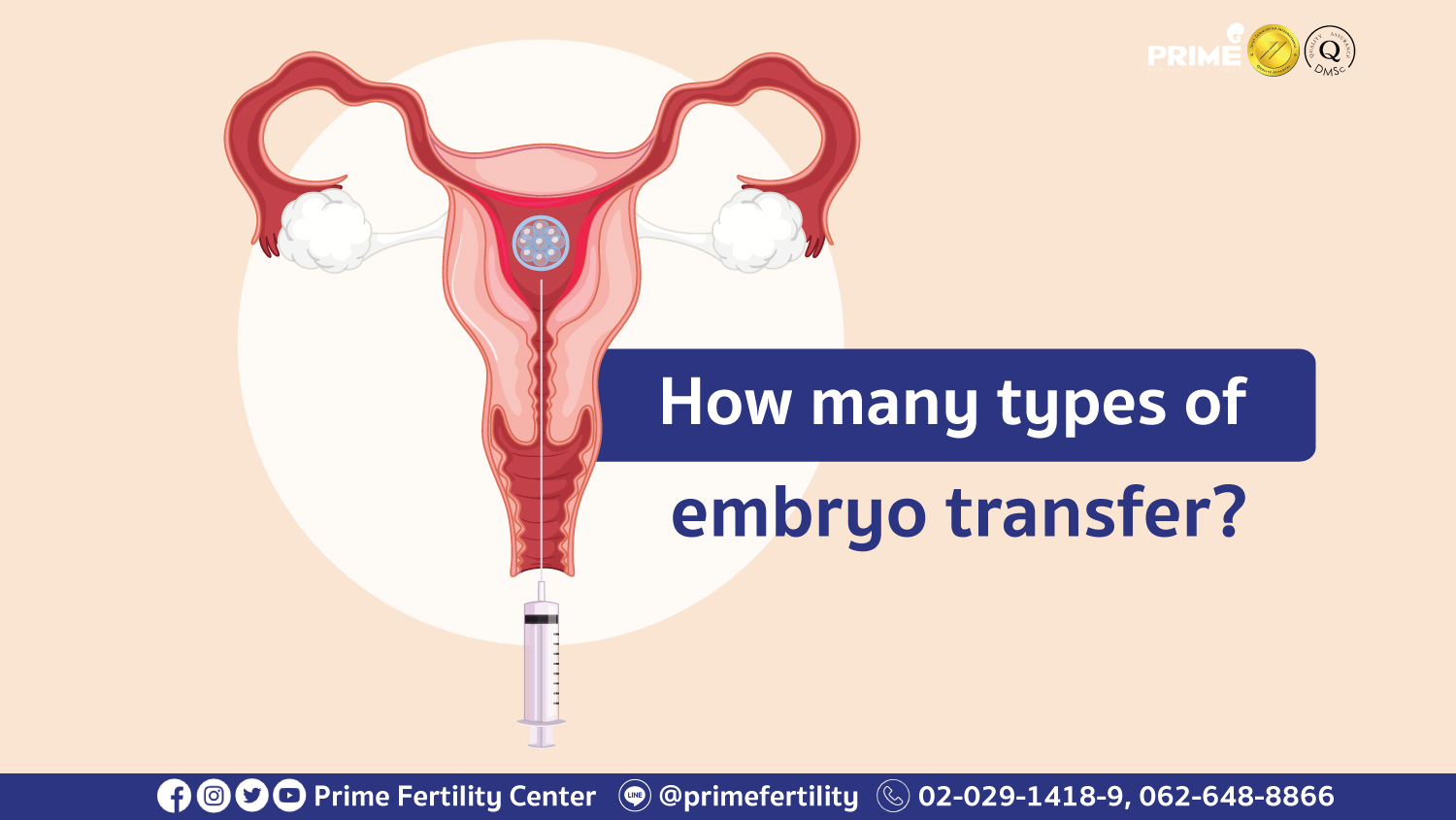How many types of embryo transfer?
There are 2 types of embryo transfer. Fresh Embryo Transfer and Frozen Embryo Transfer.
- Fresh Embryo Transfer
A fresh embryo transfer is performed after the ovum retrieval process then the egg has been fertilized with sperm. The embryo transfer takes place when the embryo reaches about Day 2 – Day 5, depending on the adequacy of embryo and uterine cavity of each patient.
- Frozen Embryo Transfer
This approach is for any patients who can’t proceed the fresh embryo transfer because of some conditions e.g., the risk of OHSS (ovarian hyperstimulation syndrome), waiting for the preimplantation genetic testing result in a couple with the risk of genetic disorders, unsuitable uterine cavity makes the fresh embryo transfer inconvenient. A frozen transfer is performed by thawing an embryo that has been frozen previously then transferring back into a female’s uterus. This embryo transfer can be proceeded after completing the endometrial preparation successfully.
Almost all procedures between 2 types of these embryo transfers are the same. Just the difference about an embryo thawing in a frozen embryo transfer. The embryo is thawed from -196 degrees Celsius to 37 degrees Celsius. This step is very important since the embryo may not survive after thawing in case the embryologist is not professional enough.
Post-thaw embryos can remain the same quality as a pre-freeze condition. Moreover, the studies found that the pregnancy rate in frozen embryo transfer is 32% higher than natural cycle and the miscarriage rate tends to decrease. However, there are various factors including the embryo quality which is a result of nourishing the eggs and sperm starting before the fertilization. To eat nutrient-rich foods in the sufficient amount for the growth of eggs and sperm can nourish eggs and sperm quality for both male and female. The success also depends on the proficiency of physician and embryologist team, equipment or technology in embryo culture, quality of uterine cavity before implantation as well as other several factors.
Reference: Prime Fertility Center Co., Ltd.

